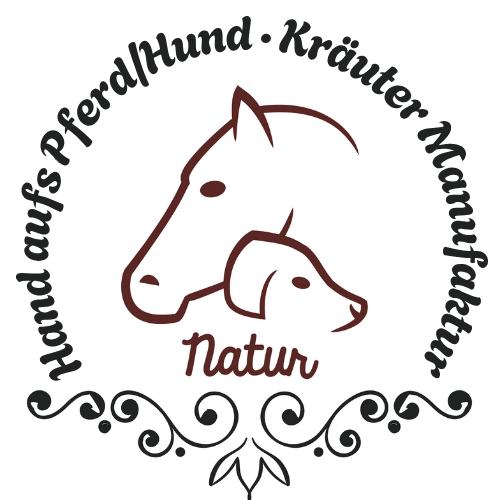Increased Liver values in the dog
Elevated liver enzymes in a dog refer to the concentration of certain enzymes and substances in the blood that are considered markers of liver health. These blood values are usually determined through a blood test called a liver function profile. The most important markers that can indicate liver disease are:
- Alanine aminotransferase (ALT): An enzyme that is present in increased concentrations in the blood in case of liver damage because it is released from the damaged liver cells.
- Aspartate aminotransferase (AST): Also an enzyme found in many body tissues, including the liver, which, like ALT, is released into the blood in increased concentrations when damaged.
- Alkaline phosphatase (ALP): An enzyme that may be elevated in cases of bile duct problems, as it is also found in the cells of the bile ducts, as well as in adolescent dogs that are still growing.
- Gamma-glutamyltransferase (GGT): Another enzyme that can specifically indicate damage or disease of the bile duct system.
- Bilirubin: A breakdown product of hemoglobin that is processed in the liver for excretion via bile and stool. Elevated bilirubin levels can cause jaundice and other symptoms and indicate a backlog or an inability of the liver to process it efficiently.
These values alone do not determine the cause or severity of a potential disease, but they do provide important clues in making a diagnosis. Elevated liver function tests usually indicate liver stress or liver disease, which can be caused by a variety of reasons, as previously mentioned in the overview of causes.
Causes of elevated liver values in dogs:
Various factors and conditions can lead to elevated liver enzymes in dogs. These include:
- Infections: Such as bacterial, viral or parasitic infections.
- Toxins: Ingestion of poisonous substances or medications.
- Nutritional: False Nutrition or too much fat in the diet.
- Metabolic diseases: diabetes mellitus, Cushing's syndrome.
- Inflammatory diseases: hepatitis, liver cirrhosis.
- Tumors: Benign or malignant neoplasms of the liver.
- Genetic predisposition: Some breeds are more prone to liver problems.
- Autoimmune diseases: The body attacks its own liver cells.
- Bile duct problems: gallstones or bile duct inflammation.
Symptoms of liver problems in dogs:
Symptoms can vary and are often nonspecific. Signs include:
- Jaundice (icterus): yellowing of the skin, mucous membranes and eyes.
- Loss of appetite or weight loss
- Increased thirst and frequent urination
- Vomit or Diarrhea
- Changed bowel habits (light stool or blood in the stool)
- Behavioral changes: lethargy, depression, aggressiveness.
- Bloated abdomen: Due to fluid accumulation (ascites).
- Coagulation disorders: Frequent bleeding or easy bruising.
- Neurological symptoms: unusual movements, confusion (hepatic encephalopathy).
Treatment of liver disease in dogs:
Treatment depends on the underlying cause and may include:
-
Medical therapy:
Antibiotics for bacterial infections.
Medicines to support liver function.
Steroids or immunosuppressants for autoimmune diseases. -
Dietary measures:
High-quality, easily digestible food that puts less strain on the liver.
Reducing fat intake in some liver diseases. -
Detoxification:
Removal or treatment of toxins and toxic substances. -
Operation:
Removal of gallstones or tumors if these are the underlying cause. -
Supportive treatments:
Infusion therapy for hydration and stabilization of electrolyte balance.
Vitamins and antioxidants to support liver function. -
Avoiding pollutants:
Avoiding liver-toxic medications, unnecessary worming treatments and vaccinations or chemicals. -
Regular monitoring:
Laboratory tests to monitor liver function and adjust treatment.
Liver values in dogs over 1000 – What does that mean?
Increased Liver values in dogs over 1000 indicate a possible serious liver disease, such as inflammation, poisoning, or chronic damage. Symptoms can include fatigue, vomiting, diarrhea, or jaundice. A prompt diagnosis and targeted treatment by a veterinarian are crucial to supporting liver function. But don't worry, the liver can regenerate very quickly.
Liver-friendly herbs for dogs – Supplement to the diet
Elevated liver values in dogs should always be examined by a veterinarian , as they can have various causes. In consultation with a veterinarian, a plant-based supplement can also be part of a holistic feeding plan.
Our liver herbs for dogs "Sunrise" contain carefully selected herbal ingredients traditionally used in connection with liver function – as a supplement to daily feeding:
-
Milk thistle – known from traditional animal nutrition; is often used as part of liver-friendly feeding.
-
Dandelion root and leaves have long been used in phytotherapy, particularly in the areas of digestion and feed supplementation.
-
Yarrow – traditionally valued as a component of herbal blends to support general well-being and nutritional balance.
These plant-based ingredients fit into a nutritionally conscious diet – especially for dogs where you value metabolic support.
Precautions and monitoring:
- Consultation with the veterinarian: Always stay in close contact with the treating veterinarian to avoid side effects and interactions with other medications.
- Quality of herbs: Use high-quality, reputable products, as purity and dosage are crucial for safety and effectiveness.
- Observation of the reaction: Observe the dog closely and look for signs of intolerance, Allergies or worsening of the condition.
- Adjustment of treatment: Adjust treatment accordingly based on the dog's responses and feedback from the veterinarian.
Because the liver is a crucial organ for detoxification, and problems with it can have serious consequences for a dog's health, it's important to exercise caution when using herbs to support liver health. Your veterinarian may perform blood tests to monitor liver function and ensure that treatment is working and that no unwanted side effects occur.
It's also important to note that herbs alone are not sufficient to treat liver problems and should therefore be considered as part of a more comprehensive treatment plan. This plan may also include dietary adjustments, medications, and other forms of support, depending on the severity and cause of the liver problems.
Source: Martina Hemm August 2025




